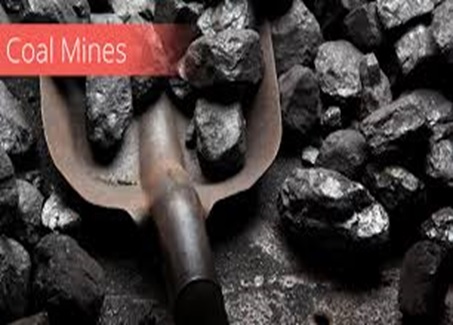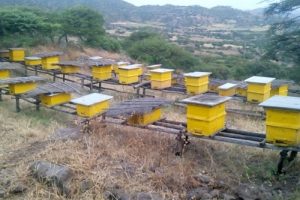
BY HIZKEL HAILU
It is crystal clear that the current Ethiopian government is undertaking homegrown economic reforms and democratic system, so that the country has been impelling for the expansion of its mineral potential through injecting it into the economy to bring about nationwide development.
It is also profusely clear that Ethiopia is inundated with a considerable amount of natural resources that come into existence in every corner and cranny of the country. On top of that, the country in its width and breadth has massive potential to lift the status of Ethiopia’s economy and create a considerable amount of job opportunities across the country.
Despite a long mining history, dating back more than a millennium, commercial and large scale mining is still in its early stages in Ethiopia. The mining industry is a sector with significant potential for the economy, document from the Ministry of Mines indicated.
Ethiopia’s virtually untapped, diverse and vast mineral resources offer huge potential opportunities for exploration and development. These include tantalum, potash, gemstones, gold, iron ore and various industrial, energy and construction minerals, and many more. So, Ethiopia is fast becoming a destination of choice for international mining investors and developers
Ethiopia’s virtually untapped, diverse and vast mineral and petroleum resources offer huge potential opportunities for exploration and development. These include petroleum, gold, coal, gemstones, tantalum, potash, iron ore, and various industrial, energy and construction minerals. This extraordinary potential coupled with improving government policies and regulations means Ethiopia is now a priority destination for international mining and petroleum investors.
Approached by The Ethiopian Herald, Hamza Kedir, a Mineral Exporter said that re-enactment of a piece of jewelry made of gemstones are a grace, adding that it is not hard to see how much more valuable and expensive things they are. These fascinating and valuable treasures are found in many parts of Ethiopia. They are also diverse in kind.
According to the expert, there are precious stones in Ethiopia that are unique in their beauty. However, many may refer to the opal as a mineral, but it is said that there is little knowledge of the mineral resources in Ethiopia, and its aesthetics are rare.
On the other hand, it is more sought after and exploited by the foreign world as well as by those who are engaged in the sector. As to him, focusing on the foreign exchange market is encouraged as it will have a positive impact on the country’s economic growth by increasing foreign exchange earnings. However, it is advisable to get used to the fact that the resources will be available in the domestic market, as it will help to find alternative markets.
Ethiopia has vast deposits of coal, tantalum, iron, nickel, manganese, potash and phosphates. However, as a result of lack of knowledge, skill, capital, and technology, both the country and its citizens are not getting benefit they deserve from these untapped mineral resources. Even though Ethiopia is endowed with the aforementioned and other mineral resources, the country is not able to achieve the desired goal, he added.
Therefore, the government is working exhaustively in order to use the unceasing economic benefit of the mining sector more importantly. As a result, owing to the target to enhance the annual mines extract capacity from 9,000 kg to 30,000 by 2025, Ethiopian Ministry of Mines is undertaking extensive activities.
Minister of Mines, Takele Umma, pointed out that the growing prevalence of modern and technologically advanced mining and exploration of gold and other precious minerals would play a significant role for the realization of the plan. He said: “The policy reform that we introduced recently centered on exporting value-added products with a view to boosting the foreign currency earnings.”
As to the Minister, now a mechanism is set to enable gold traders to bring their products to the National Bank of Ethiopia as a result of easing the previous bureaucratic setbacks and facilitating the gold export. “The other big step taken by the current policy reform is’ enabling the gold traders directly access key actors of the local market,” he added.
Due to viable measures being taken by the reformist government, the Ministry comfortably achieved 283 million USD from the exported minerals during the past six months. The Ministry made the announcement after a review meeting of its six-month performance.
Million Mathewos, State Minister of the Ministry for his part explained that the mining sector has a significant role to play in ensuring sustainable development in Ethiopia. In light of this, he said that institutional reform has been conducted and continuous works are set in motion to ensure increased production in the sector.
The mining sector holds a huge potential that will help secure more foreign exchange, as well as replace imported mining products with local ones, the state minister related. The 283 million USD is obtained from the export of gold as well as other products.
Moreover, the Ministry said it has provided support for industries in the sector, and consequently witnessed a rise of up to ten thousand tons in production at some production factories.
By the same token, it was noted that Ethiopia spends up to 275 million USD to import coal, and efforts are underway to replace this with local production. In order to solve the problem which is visible in developing coal production, Ministry of Mines recently announced that it has inked investment agreements with eight coal mining companies. The companies have a total registered capital of six billion birr for the projects.
Undoubtedly, coal is among the major minerals found in Ethiopia in bulk especially in Oromia region where youth in different areas are organized and engaged in small scale production of briquettes that is being used as fuel for cooking. The Ministry of Mines of Ethiopia claims that there is 430 million tons of potential of coal in the country.
In addition to Oromia, some areas in Amhara and Southern regions are also reported to have huge coal mineral reserve. In mid-June 2021, Sun Mining Coal factory the first coal factory in Ethiopia and a sister company of Sunshine Investment Group owned by the Ethiopian tycoon Samuel Tafesse, has laid a foundation to commence coal production at Gibe Ibare Kebele in Abeshge Woreda of Gurage Zone.
It was reported that when it starts production, Sun Mining will be able to produce a total of 800,000 tons of washed coal per year from the 23.3 hectare land the company has secured, so disclosed the Ministry.
Though Ethiopia is endowed with huge coal reserves, the country has been spending some 200 million USD in hard currency for importing coal, which is mainly used by different high energy consuming factories such as for running machineries that produce cement and steel, among others. According to the Ministry, in Oromia Region, Illbabor Zone, Yayu Woreda (district) is endowed with over 179 million tons of coal potential, according to the study made by Changshi, a China based company.
Some documents also indicated that even though, coal is known as among the most environmentally pollutant energy sources releasing huge amount of Carbon dioxide (CO2), most of the countries in both developed and developing world – from South Africa, India, and Australia to China and the United States – are still using coal as their major energy source.
It is estimated that coal contributes about 25 percent of the total global energy source. In 1973 coal held a share of 24.5 percent of global energy supply, while oil accounted for the largest share at 46.2 percent, according to International Energy Agency (IEA’s) estimates. In 2018, the share of coal increased to 26.9 percent, while oil’s share of global energy supply dropped to 31.6 percent.
In the case of Ethiopia, the share of coal in energy supply is estimated to be around 0.5 percent. The country’s major energy source still remains to be dominated by waste and biomass, which contributes to about 92 percent, while oil represents to about 6 percent, and hydro 1.6 percent.
The commencement of the eight coal mining companies is expected to increase the share of coal in energy supply while cutting the country’s hard currency spending on the import of coal and among others, experts in the field pointed out.
Minister of Mines, Takele Uma also tweeted that he is hopeful that the companies, recognizing the national significance of the projects, will complete their works according to schedule. The Minister moreover pledged to provide all required support for the success of the projects. There up on, experts of the field agreed that the Ministry in collaboration with the government, investors and stakeholders should seemingly work hand in hand in order to support the national economy.
The Ethiopian Herald march 27/2022





